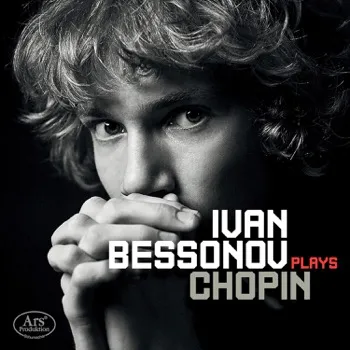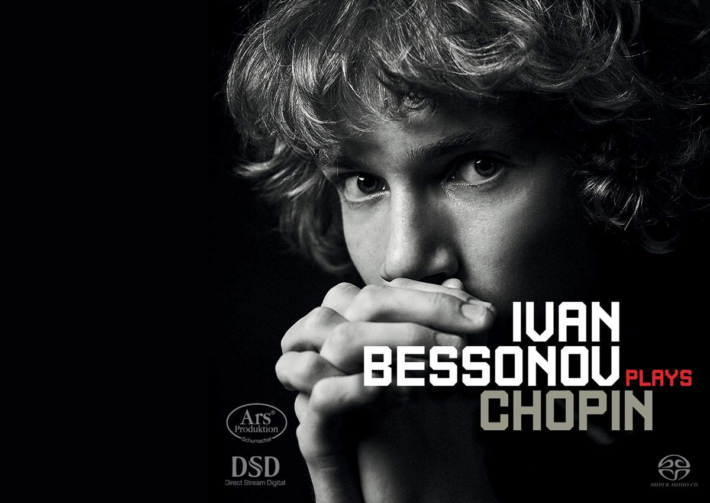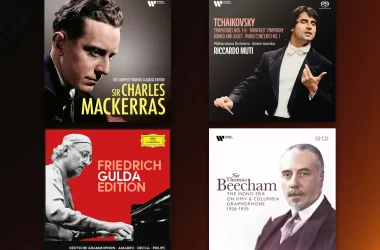Ivan Bessonov, 16 at the time of this recording, is not new to world stages or competitions, the most notable of which is his win of the “Grand Prix” at the International Chopin Piano Competition in Saint Petersburg. But he has also became known to a younger audience after winning the “Eurovision” for young musicians last year, which we’ve covered here. This is his debut solo album.

The album contains a good sample of Chopin’s work – two Mazurkas, two Etudes, a Waltz, the “Fantasie-Impromptu”, Polonaise and the Second Sonata. The Mazurkas are played extremely well, with superb control over tone coloring and pedal work, with the middle sections especially charming. Generally speaking, Bessonov holds some “old fashioned” style in his playing (a bit of an oxymoron giving his young age), but the influence of an old generation of piano playing is unmistakably present – the young Pletnev or Kissin come to mind, both became more tamed as they got older.
The first etude we have here (Op. 10 No. 3) is another triumph, showing a nice ability to hold a long legato line, while the second etude (Op. 10 No. 12), sound a bit too cautious. Jan Lisiecki, another pianist who recorded the complete set in his teens, is wilder here without missing a bit. The Waltz, Fantasie-Impromptu and Nocturne are lovely (especially the latter), while the polonaise could have used a better preparation – time and again there are slips of the fingers that perhaps should have made this take kept out of the album.
The impressive piece here, undoubtedly, is the Second Sonata, which receives an impressive account as any, the first movement full of robustness, a second movement with demonic energy (here the finger work is first class), and a solemn, deeply felt Funeral March. The difficult finale, with its notoriously difficult unison passages, hits the right balance between the atmospheric and the literal, with yet another superb pedal control. The album closes with three short pieces by Bessonov. They show some promise, taking some cues from Scriabin and Shostakovich, yet hold their own.
An interesting album, then. Generally well recorded at the hall of the Moscow’s Tchaikovsky Conservatoire, yet one has to accept some oddities, such as Bessonov’s Steinway sounding a bit out of tune on some tracks, and occasional interruptions like what appears to be a door shut in the middle of the Funeral March, or an abrupt editing between the first and second movement of the Sonata. Yet all in all, this is an intriguing debut and an artist to watch.
Chopin – Piano Works
Mazurkas (2), Op. 24 No. 4, Op. 17 No. 4
Etudes (2), Op. 10 No. 3 & 12
Grand Valse, Op. 42
Fantasie-Impromptu, Op. Posth. 66
Nocturne in C Sharp Minor, Op. posth
Polonaise, Op. 44
Piano Sonata No. 2, Op. 35
Ivan Bessonov – Piano
ARS Produktion, CD ARS 38 277




















